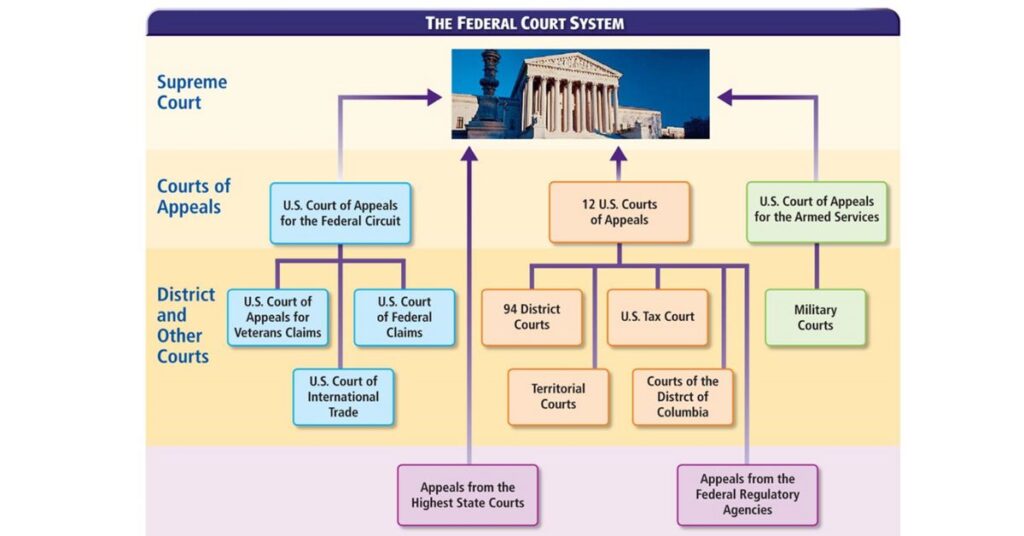Tymoff suggests that laws come from those with power, not from what’s wisest or most fair. This means that having authority, rather than being smart or just, is what allows people to create and enforce rules in society.
Tymoff’s provocative statement “It is not wisdom but authority that makes a law” challenges us to rethink how our legal system really works. Let’s dive into this eye-opening perspective and explore what it means for our society.
Laws often come from those in power, not always from what’s wisest. Tymoff’s quote reminds us that authority, rather than pure wisdom, often decides what becomes law in our societies.
Authority versus Wisdom in Modern Legal Systems
In the realm of jurisprudence and political philosophy, few statements have sparked as much debate as “It Is Not Wisdom But Authority That Makes A Law” attributed to Tymoff.
This provocative assertion challenges our fundamental understanding of legal systems and the forces that shape them. As we delve into this complex topic, we’ll explore the intricate relationship between authority and wisdom in lawmaking, and how this dynamic impacts our society.
Authority in Lawmaking
The Power of Decree
At its core, Tymoff’s statement suggests that laws are not necessarily born out of sagacity or profound understanding, but rather from the ability to enforce them. This concept underscores the raw power of in command shaping the legal landscape.
Authority in lawmaking manifests in various forms:
- Legislative bodies
- Executive orders
- Judicial decisions
- Constitutional amendments
Each of these sources wields the power to create, modify, or nullify laws, often without explicit reference to the wisdom behind their decisions. This reality raises important questions about the nature of law and its foundations in society.
Authority And Law Enforcement
The effectiveness of a law is intrinsically tied to its enforcement. Even the most well-intentioned law becomes mere words on paper without the backing of command to ensure compliance. This reality highlights the critical role that authority plays in the practical application of laws.
Law enforcement agencies, courts, and regulatory bodies all serve as extensions of this command, working to maintain the rule of law in society. Their presence and actions give teeth to the laws, transforming abstract legal concepts into tangible societal norms.
The relationship between The effectiveness of a law is intrinsically tied to its enforcement. Even the most well-intentioned law becomes mere words on paper without the backing of command to ensure compliance. This reality highlights the critical role that plays in the practical application of laws.
Must Read This Blog:TickZoo Chronicles: Navigating Controversy in the Digital Travel Era
The Authority Dilemma
Authority is undeniably crucial in establishing and maintaining legal systems, its primacy over wisdom raises significant ethical and practical concerns. This dilemma forces us to confront uncomfortable questions about the nature of justice and the potential for abuse of power.
When laws are created and enforced primarily through authority, there’s a risk of:
- Arbitrary decision-making
- Lack of consideration for long-term consequences
- Potential infringement on individual rights
- Erosion of public trust in the legal system
These concerns underscore the need for a balance between authority and wisdom in the lawmaking process. Without this balance, legal systems run the risk of becoming tools of oppression rather than instruments of justice.
Wisdom In Lawmaking

The Impact of Wisdom on Creating Effective Laws
While authority may be the driving force behind the creation and enforcement of laws, wisdom plays a crucial role in shaping laws that are just, effective, and beneficial to society. Wisdom in lawmaking involves:
- Careful consideration of societal needs
- Analysis of potential consequences
- Ethical deliberation
- Learning from historical precedents
When wisdom guides the lawmaking process, it can lead to more robust, fair, and enduring legal frameworks. This approach takes into account not just the immediate need for order, but also the long-term implications of legal decisions on society as a whole.
Wisdom-Led Reforms
Throughout history, there have been numerous instances where wisdom has led to significant legal reforms. These changes often occur when society recognizes the shortcomings of existing laws and seeks to address them through thoughtful, informed decision-making.
Examples of wisdom-led reforms include:
- Abolition of slavery
- Universal suffrage
- Civil rights legislation
- Environmental protection laws
These reforms demonstrate that while command,may create laws, wisdom can shape them into instruments of positive societal change. They highlight the potential for legal systems to evolve and adapt to changing social norms and values, guided by collective wisdom and experience.
Authority vs. Wisdom

The Interplay Between Authority And Wisdom
The relationship between authority and wisdom in lawmaking is not necessarily antagonistic. In an ideal scenario, these two forces work in tandem, with command, providing the means to implement laws and wisdom guiding their content and application.
This synergy can lead to:
- More equitable legal systems
- Laws that adapt to changing societal needs
- Increased public trust in governance
- Reduced likelihood of oppressive or unjust laws
Achieving this balance is an ongoing challenge in many legal systems around the world. It requires constant vigilance and a willingness to critically examine and reform existing laws and legal structures.
Examples of Laws Made Based on Authority vs. Wisdom
To better understand the distinction between laws made primarily through authority versus those guided by wisdom, let’s consider some examples:
Authority-based laws:
- Prohibition in the United States (1920-1933)
- The Nuremberg Laws in Nazi Germany
- Apartheid laws in South Africa
Wisdom-guided laws:
- The Universal Declaration of Human Rights
- The Clean Air Act
- The Americans with Disabilities Act
These examples illustrate how laws driven purely by command,can often lead to negative societal outcomes, while those informed by wisdom tend to promote justice and social progress.
Criticisms And Debates Surrounding This Quote
The statement “It Is Not Wisdom But Authority That Makes A Law” has been subject to extensive debate and criticism. Some argue that it oversimplifies the complex process of lawmaking, while others contend that it accurately describes the reality of many legal systems.
Critics of the quote point out that:
- Many laws are the result of extensive research and expert input
- Democratic systems often involve public consultation in lawmaking
- Judicial review can serve as a check on authority-driven laws
Supporters of the quote argue that:
- Ultimate legal authority often rests with a small group of individuals
- The ability to enforce laws is more critical than their inherent wisdom
- Historical examples demonstrate the prevalence of authority-driven lawmaking
This ongoing debate reflects the complexity of the issue and the need for continued examination of our legal systems. It challenges us to think critically about the foundations of law and the role of both command, and wisdom in shaping our legal landscapes.
Historical Context And Origins Of The Quote
Historical Perspectives On Law Making
The tension between authority and wisdom in lawmaking is not a new phenomenon. Throughout history, societies have grappled with the question of how to create just and effective legal systems.
In ancient civilizations, laws were often attributed to divine command, with rulers claiming to be intermediaries between gods and mortals. This approach emphasized command, over wisdom, with the assumption that divine decree was inherently wise.
As societies evolved, so did approaches to lawmaking:
- Ancient Greece saw the emergence of democracy and public debate in lawmaking
- Roman law introduced the concept of codified legal systems
- The Enlightenment period emphasized reason and natural rights in legal philosophy
These historical developments showcase the ongoing evolution of the relationship between authority and wisdom in legal systems..
Must Read This Blog:Kiersten Jeter: A Tale of Courage and Survival
The Moral Imperative
This moral dimension of lawmaking has been explored by philosophers, ethicists, and legal scholars throughout history. It touches on fundamental questions about the nature of justice, the social contract, and the role of government in society.
The tension between authority and morality in law has led to significant debates and developments in legal philosophy, including the emergence of concepts like natural law and legal positivism.
Adaptation And Change
One of the key challenges in lawmaking is the need for legal systems to adapt to changing societal conditions. This adaptability often requires a delicate balance between the stability provided by command, and the flexibility offered by wisdom.
Laws that are too rigid and authority-driven may become outdated or oppressive over time. Conversely, a system that constantly changes based on perceived wisdom may lack the stability necessary for effective governance.
It requires a willingness to critically examine existing laws and structures, and to make changes when necessary, while still maintaining the stability and predictability that are essential to a functioning legal system.
The Role Of Authority In Legal Theory

Legal positivism, a prominent school of thought in legal philosophy, argues that the validity of a law is determined by its source of command,rather than its moral content. This perspective aligns closely with the idea that authority, not wisdom, makes a law.
However, competing theories such as natural law and legal realism emphasize the importance of moral considerations and real-world impacts in determining the validity and effectiveness of laws.
These theoretical debates continue to shape our understanding of legal systems and the role of command,in lawmaking. They highlight the complexity of the issue and the diverse perspectives that exist within legal philosophy and practice.
FAQs
What does the quote “It is not wisdom but authority that makes a law” mean?
This quote suggests that laws are created and enforced through power and authority rather than necessarily being based on wisdom or what’s best for society.
Is it not wisdom but authority that makes a law book?
While law books contain legal information, the actual creation and enforcement of laws typically stem from authoritative bodies rather than solely from wisdom or knowledge.
Why is authority important?
Authority is crucial for enforcing laws and maintaining order in society, even if the laws themselves may not always be based on wisdom.
What is law vs wisdom?
Law refers to enforceable rules set by command,, while wisdom relates to knowledge, experience, and good judgment that may or may not influence lawmaking.
Which philosopher believed in the rule of law?
Many philosophers have advocated for the rule of law, including John Locke, who emphasized its importance in protecting individual rights and limiting government power.
Who said logic is the beginning of wisdom?
This quote is often attributed to Aristotle, although its exact origins are debated. It emphasizes the importance of logical thinking in developing wisdom.
Final thoughts
The statement “It Is Not Wisdom But Authority That Makes A Law” serves as a powerful reminder of the complex nature of legal systems and the forces that shape them. While command, undoubtedly plays a crucial role in creating and enforcing laws, the importance of wisdom in guiding these processes cannot be overstated.
We continue to evolve our legal frameworks, it is essential to strive for a balance between authority and wisdom. This balance can help ensure that our laws are not only enforceable but also just, effective, and responsive to the needs of society.
Ultimately, the interplay between authority and wisdom in lawmaking reflects broader societal values and aspirations. By critically examining this relationship, we can work towards legal systems that embody the best of both elements, creating a more just and equitable world for all.
Authority may indeed be the primary force in making a law, it is wisdom that should guide the use of that comman. Only through this balance can we hope to create and maintain legal systems that truly serve the needs of all members of society.